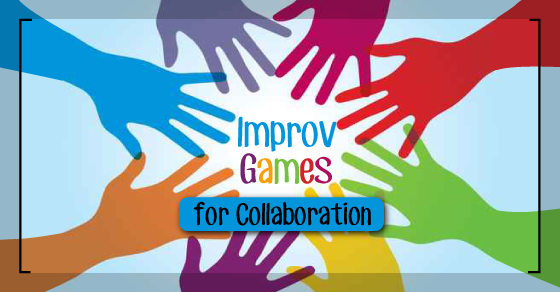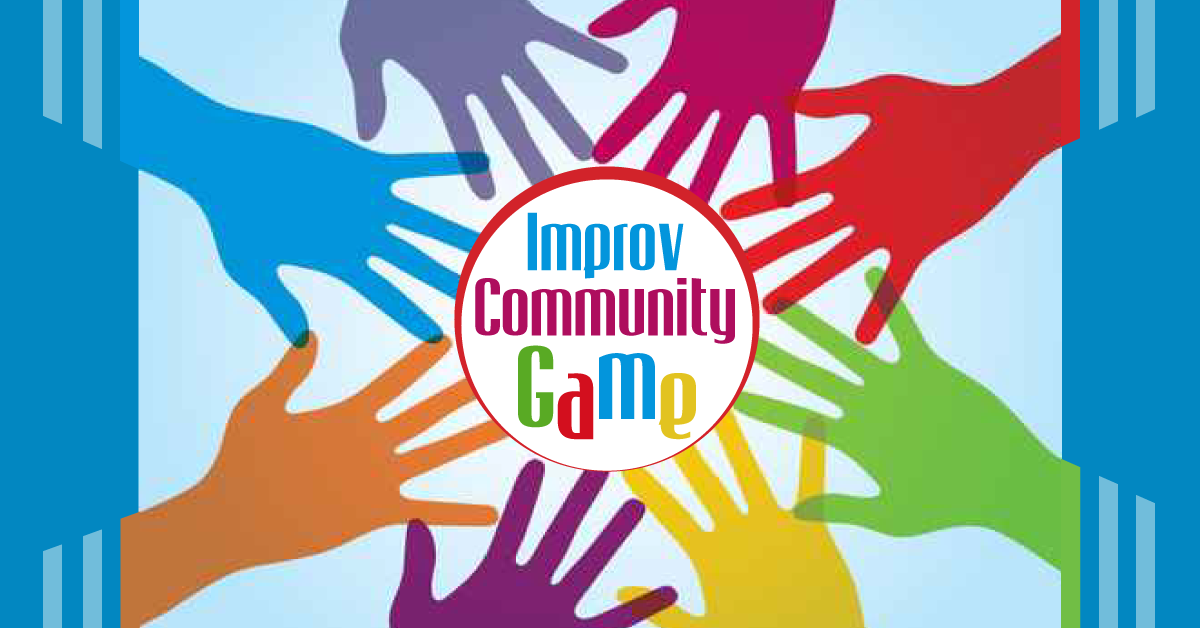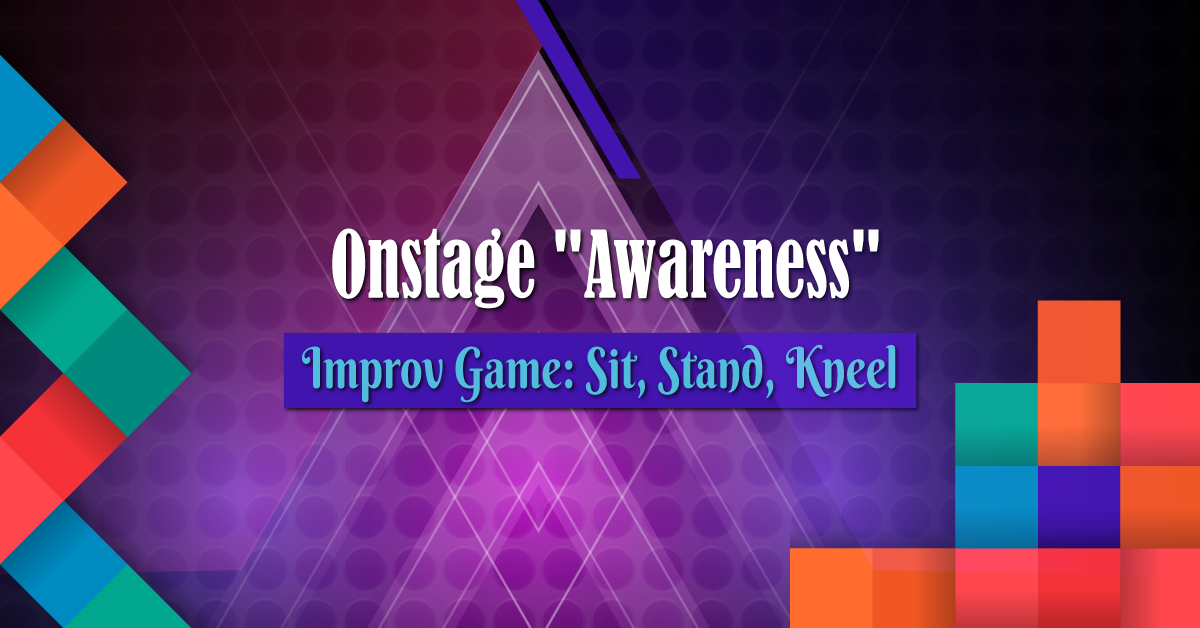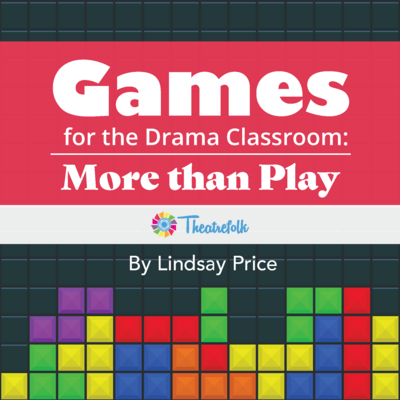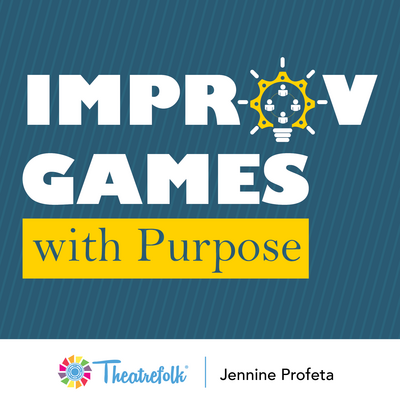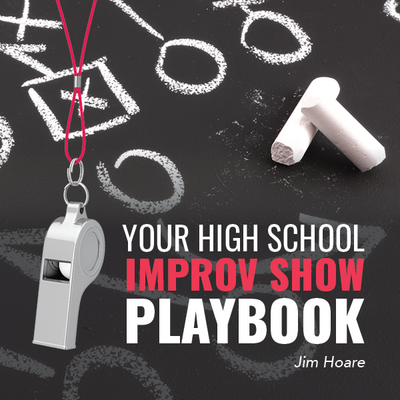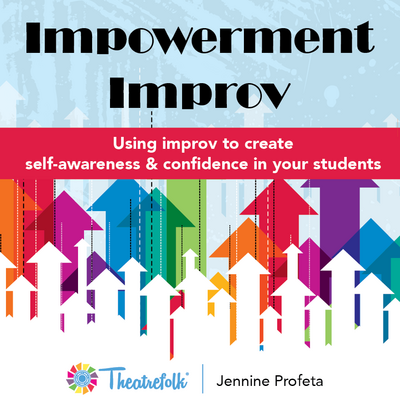Improv Games for Collaboration
Here are some great improv games to work on collaboration skills.
Word at a Time Story
Students sit in a circle. Give them a title for a story. “The Best Birthday Ever.” The story is told one word at a time around the circle. Remind students that the story has to make sense. They are building sentences, not throwing in funny words to try and get a laugh. Everyone has to work together to remember where they’ve been and try to create a cohesive throughout.
Family Portrait
Divide the class into groups. Each group comes up one at a time and is given a title for a picture that revolves around a type of family. “Family of Dentists. Family of Cheerleaders. Family of Lost Librarians.” You can even get more specific. “Right after grandma’s big announcement” or “The Dentists Convention” or “Cheerleaders Lose the Championship.” Groups have ten seconds to form a portrait based on the title. Remind students to think about the characters involved in the picture and to talk to each other so that there are no repeat characters. They have to tell a story, even though they are frozen in place. A time limit forces students to work quickly. Count them down and at the end of 10 seconds yell out FREEZE! The end result should be a cohesive picture.
Foreign Film Dub
A scene for a group of four. Two players act out a scene in gibberish. The second two players are their English Language “Dubbers.” They translate the scene into English. Tips for the scene – those using gibberish should use a lot of physical action to give clues to their translator counterparts. Also, keep the sentences short. Remember, the goal here is a cohesive scene. You have to work together as a team to make the best scene possible. Once the scene is complete, switch roles.
Same Circle
Everyone stands in a circle. Person A makes a small gesture. The person beside them repeats the gesture and so on around the circle. The point of the exercise is to keep the gesture exactly the same. Everyone has to concentrate and pay attention to the gesture. It’s not supposed to get bigger, or change hands, or twist. It must be repeated exactly. Harder to do than you think. You can do the same exercise with sounds.
Group Environment
Divide the class into groups of 5. The first person in the group enters a space and mimes an action that defines an environment. Once another group member knows that what that environment is, they enter the space and perform a complementary action. This keeps going until the entire group is in the environment. Remind students that the key is to create a complete picture. They all have to work together in the moment and not try to add something that destroys the environment.
Actor Switch
Three actors are given a situation and a character from the audience. They start a scene. At some point during the scene you call out SWITCH! The three actors now have to switch characters. That means they have to really listen to each other and be aware of who the other characters are, so that they can pick up another character at any moment. And remind students, the aim is to keep striving for a complete cohesive scene no matter what the situation.
Story Death
Five actors line up across the front of the space. They are going to tell a story. Get a topic from the audience and then come up with a title. “The Best Underwater Adventure Ever.” You act as conductor in front of the line. When you point to an actor, they have to tell the story. The aim for the actors is to make the story seamless and always be ready to jump in to continue the story. If anyone stutters, freezes, repeats unnecessarily, the audience shouts out DIE! and that actor has to give themselves an imaginative (and of course imaginary) death scene. The bigger the better. Now there are only four people to tell the story. Get a new topic and give a new title. This continues on until there are only two actors battling it out. Don’t be afraid to get faster with your conducting or surprise an actor by going back to them immediately, keep them on their toes!
Hitchhiker
A scene with three actors and three chairs. The scene starts out with a driver and a passenger. They start their conversation and in the middle of it, the hitchhiker approaches. The hitchhiker has to have a defined physicality, character, and vocal quality. As soon as the hitchhiker gets in the car, everyone in the car takes on his/her character. Keep in mind, the scene still has to continue. It’s not just be a funny character, there has to be a conversation. After a moment the drive comes up with a reason to leave the car and everyone slides over, returning to a neutral character. Then a new hitchhiker approaches with a different physicality, character and vocal quality. Cycle through your class so that everyone has the opportunity to play.
Related Articles
Games for the Drama Classroom: More Than Play
by Lindsay Price
A collection of games and activities that go well beyond the notion of "play."
Improv Games with Purpose
by Jennine Profeta
Improv games including feedback suggestions and questions, game variations, teaching tips, side coaching tips, entry prompts, exit slip questions, and more!
Your High School Improv Show Playbook
by Jim Hoare
Have you wondered how to take improv to the next level with your students? Your High School Improv Show Playbook is the "how-to" guide for you! Empower students to present their first improv show that is fun and entertaining for all.
Impowerment Improv
by Jennine Profeta
Using improv to create self-awareness & confidence in your students
